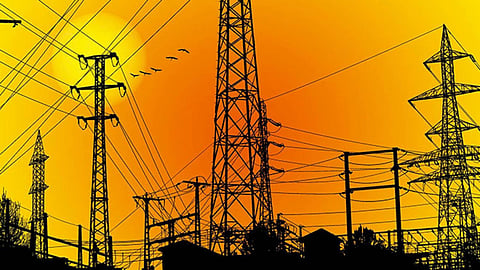Repeated payment defaults by power distribution companies (discoms) has forced the Power System Operation Corporation (Posoco), a public sector enterprise under the Ministry of Power responsible for monitoring and ensuring round-the-clock integrated operation of Indian power system, into action. It has invoked the Electricity (Late Payment Surcharge & Related Matters) Rules 2022 against 12 states and a Union Territory, stopping them and their discoms from buying spot power on the exchanges till they clear their late payment surcharge (LPS). The states include Maharashtra, Madhya Pradesh, Rajasthan, Karnataka, Andhra Pradesh, Telangana, Tamil Nadu, Bihar, Chhattisgarh and Jharkhand. In all, 27 discoms were involved. The amount involved was Rs5,085 crore.
Posoco issued a directive to the Indian Energy Exchange (IEX), Power Exchange of India (PXIL) and Hindustan Power Exchange (HPX) to restrict the trade of electricity by utilities in these states. State utilities can be barred from trading on electricity exchanges under the payment security mechanism, if they fail to pay dues of generating companies (gencos) and other charges. The supply of power shall be made only if an adequate payment security mechanism is maintained or, in the absence thereof, advance payment is made.
As per the law, the states have to submit a repayment schedule of their dues to the generation companies (which can go up to a maximum of 48 monthly installments), which includes the LPS. They must pay up at least the LPS to the gencos that is due for the month to ensure that they can buy and sell power. Posoco’s move has the desired effect and, within a week, 11 states had paid up their dues. Discoms of two states were still cut off from the exchanges at the time of writing.
But, will the crackdown spur reforms? That is a moot point. Discoms have been perennially in the red, cash-strapped and mismanaged. Repeated attempts to help them turn the corner, including the Ujjwal Discom Assurance Yojana (UDAY) launched in 2015, have not really helped. At present, Discoms owe gencos over Rs1.2 lakh crore.
The invocation of the LPS Rules, however, is aimed at bringing financial discipline in payments by Discoms. It has put the spotlight back on structural reforms required in the sector. Experts point out that restoring Discoms to some financial health is an exercise that can take half-a-decade, if not more, assuming that technical and regulatory reform proceeds smoothly, and the Centre and the states work together. However, the liquidity needs of gencos cannot suffer on account of these wrangles. The LPS Rules can really help here.
Knotty issue
The health of the discoms is crucial to keep the wheels of the economy running. Various schemes are in operation (such as the Rs3.05 lakh crore package announced in the Budget 2021-22) to improve the quality of their assets — in the form of grid infrastructure, smart meters and feeder separation for agriculture and domestic use. This will reduce power leakages through billing efficiencies as well as ensure that tariffs can be changed over the time of day to ensure that the difference between peak and off peak loads is smoothened out.
However, the knotty issue of fixing tariffs in a way where industrial users do not subsidise residential ones has not been given the attention it deserves. State regulatory commissions often rubber-stamp tariff subsidies or hikes by governments. These bodies should have a diverse stakeholder representation for objective decision-making. The financing for discoms’ infrastructure should be ring-fenced from their operational needs. As for the latter, last year’s NITI Aayog report on discoms observes that AT&C losses remain high at over 20 per cent, with several States above this average.
Discom losses started climbing after 2017-18, while Covid made matters worse; this was after showing a declining trend in the five preceding years. AT&C losses can be arrested with better infrastructure. The financially stronger states could do better at improving their systems, as is the case with feeder separation, which also points to the need to monitor the performance of financially weak states.
Discoms, as the report says, should exit from unviable legacy PPAs. Long-term PPAs account for 80 per cent of their electricity purchases. A lock-in for commercial buyers must be enforced as they shuttle between the open market and discoms. Above all, discoms need professionalism and independence. Their absence is borne out by the recent payments default.

